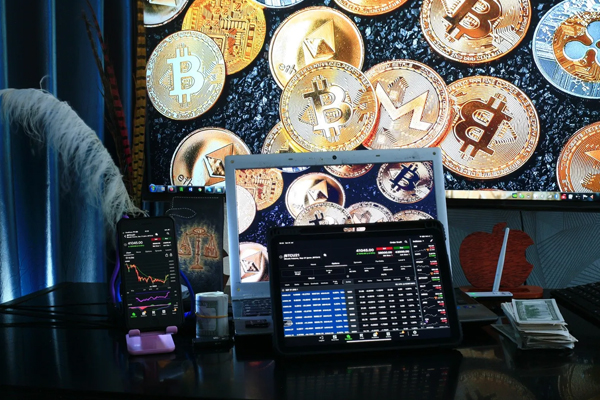The City of San Francisco has recently given its approval for the accreditation of VXPASS as a COVID-19 digital vaccine card provider. This means that any person in the City of San Francisco can use their VXPASS and valid photo identification as proof of their vaccination status to business or any entity that requires it.
“This is the first blockchain-based vaccine card service accepted by San Francisco. San Francisco was the first to open it up and say we will accept some sort of digital pass in the U.S., so it is essentially the gold standard of adoption. They have updated their site to reflect this and now you cannot be turned away by showing a VXPASS to a business in the city,” Justin Pauly,
VXPASS executive director of international affairs, said.
VXPASS is built on the BSV blockchain, the only scalable public blockchain in the market. Thus, all vaccine records can be stored forever on the blockchain, allowing for digital vaccine cards verified by certified healthcare providers to be published and be personally accessed by vaccine card owners.
“The other solutions are essentially self-validation and are not really verified – they are essentially just a picture of your card. Ours is verified against a credentialing body – sometimes its doctors, most of the time its pharmacists,” Pauly explained.
Ensuring Patient Privacy
Of course, vaccination records need to be monitored by government agencies and other healthcare entities in order to have a clear percentage of the number of citizens who have been fully vaccinated against COVID-19.
VXPASS creates an electronic version of the vaccination cards that are signed digitally and can be verified or cross-checked against data stored on the BSV blockchain through a QR code. Using techniques that secure patient privacy, VXPASS allows individuals to have control over their data. In this way, authorized entities can have access to relevant COVID-19 vaccination data without exposing the real-world identities of vaccinated individuals.
“At VXPASS we always wanted to create a verified health record instead of some copy or digital version of a paper vaccination card. We got through because our solution is verified through state databases and they trust our system enough to say that any VXPASS is 100% valid. So, not only do we feel validated by San Francisco, but San Francisco feels safe enough to believe in our validation,” Pauly pointed out.
The people of the City of San Francisco can obtain a VXPASS vaccine card at the point of vaccination. For those who are already fully vaccinated, they can go to a VXPASS-certified pharmacist so their vaccination record can be inputted digitally onto the blockchain.
“The pharmacists would look at that [identification]. They then look you up on the database, make sure that the information is correct, and then they essentially stake their name and their operational ID against that record, validating that it is correct. The interesting thing about VXPASS, and this is why it’s a verified health record instead of just an electronic health record, is once we put it on-chain, it’s immutable—it’s on-chain, its unchangeable,” Pauly explained.
The process is very fast and easy. Recording data is almost instantaneous and records are updated in near real-time because the BSV blockchain, on which VXPASS is built, continuously scales to improve its capabilities of being able to accommodate big and bigger data, as well as instant transactions at a cost of mere fractions of a penny.
“In VXPASS, when you sign up as a new patient and you go through the process, our biggest complaint was that it happens too quickly and people couldn’t believe that we’d written something to the blockchain. So, we had to put information slides within the application’s sign-up process. It’s such small amounts of data and BSV has such a quick turnaround that we had to slow the process down,” Pauly recounted.
It is because the BSV blockchain can scale in an unlimited manner that VXPASS can be used by people, not just in the United States, but across the globe. In the U.S. alone, VXPASS has already onboarded about 50,000 pharmacies, averaging 900 per hour. As evidenced by the increasing adoption of VXPASS, building on BSV is the most efficient way when dealing with massive amounts of data.
With this initial number of pharmacies onboarded in the U.S. and the City of San Francisco taking the lead, it would not be an overstatement to say that nationwide adoption is not too far into the future.
The new Omicron variant is just another sad reminder that COVID-19 is becoming endemic and part of life. And the need for vaccine cards as proof of vaccination being required by businesses and travel authorities is being reinforced in order to prevent the unnecessary spread of the virus. It can be said that a digital vaccine card is something that people around the world would use.
As opposed to physical vaccine cards that can easily be misplaced, lost or damaged, having a digital vaccine card that is easily accessible through mobile phones and can easily be saved and backed up in other devices or on cloud drives is much more convenient and secure.
“Unlike our competitors, VXPASS is for life. For some of them, you have to pay monthly to track the vaccine status of employees. In market, we’re far less expensive than others… I think we are going to see a hockey-stick spike in onboarding,” Pauly confidently said.

